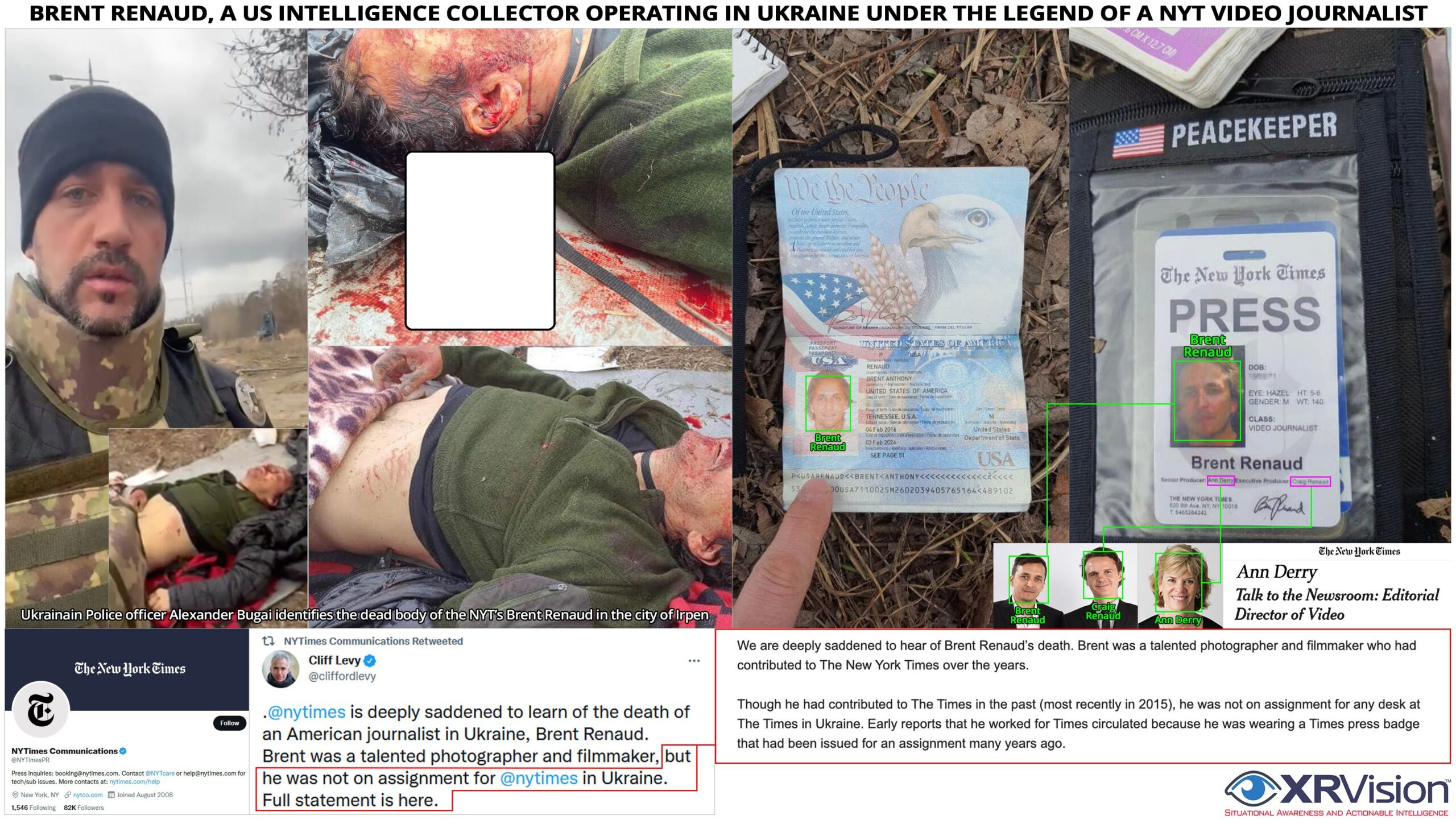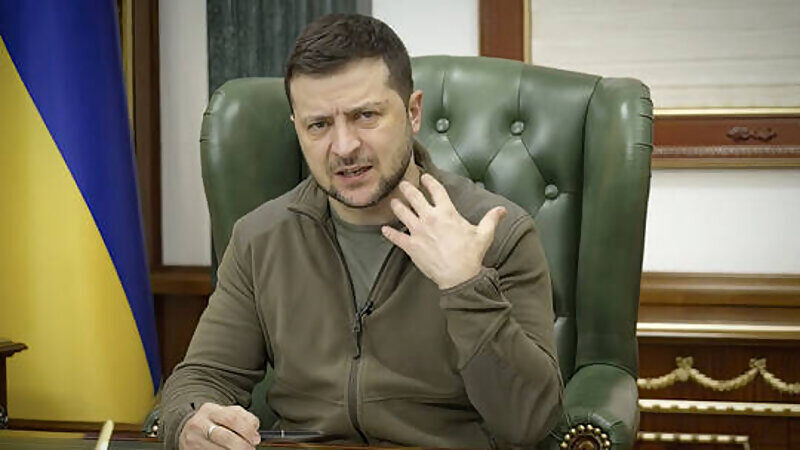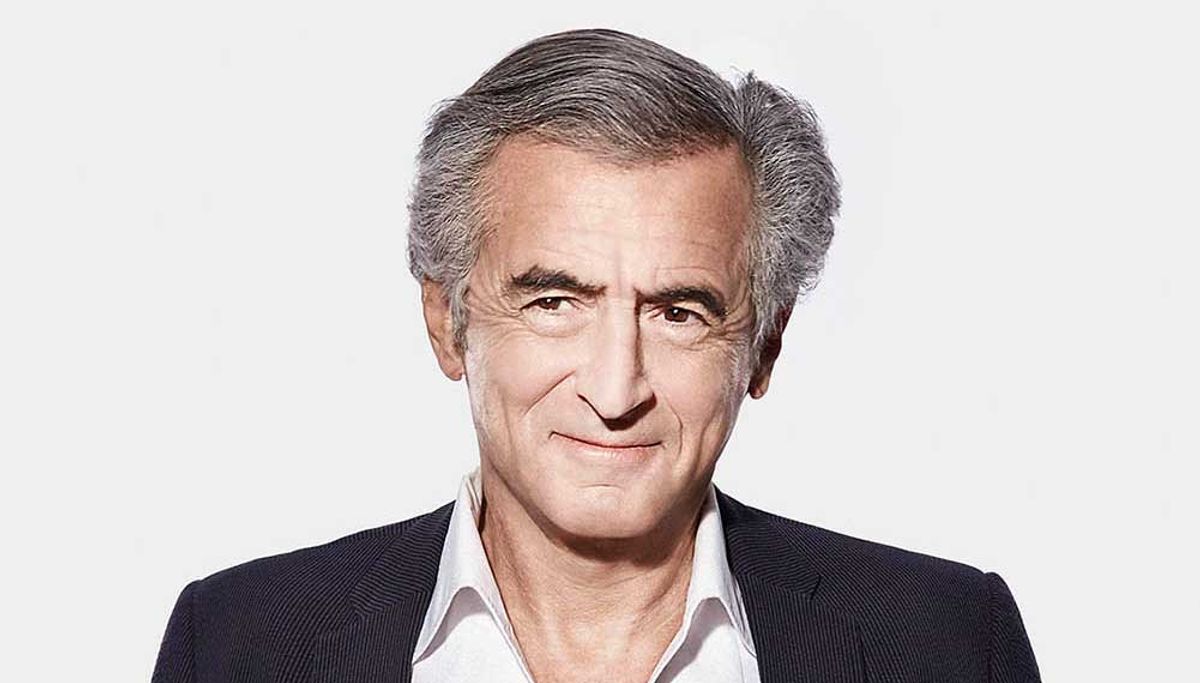
#
Opinion of M.V.Zakharova:
In the countries of the "collective West", the destruction of the last signs of Russia's information presence continues. In some states, it's time to talk about media genocide (
Медиагеноцид ) the Russian media, for the implementation of which the authorities, who have entered into some kind of frenzy, no longer bother even trying to justify censorship from a legal and especially from an international legal point of view.
American IT giants, irrevocably biased multilateral structures, groups of politically engaged NGOs have actively joined the process. We will talk about the specific milestones of this, without exaggeration, attack on the very foundations of the concept of freedom of speech a little later.
In the meantime, it is necessary to refresh the memory of the chain of events preceding this aggression in order to formulate a confident conclusion: it was painstakingly and systematically prepared in advance, long before this massacre, in order to be carried out by coordinated efforts at the right moment.
When all the masks of the so-called liberal democracies were finally thrown off, when they, without blinking an eye, transferred all their international obligations to protect and strictly follow the principle of pluralism of opinions to the status of waste paper, there was no other qualification for the long-term harassment of our media abroad, except for planning the destruction scenario.
The essence of what we call the West is made up of #NATO member countries. Meanwhile, at the doctrinal level, the alliance ranked Russia among its opponents. Among other things, this clearly implies the need and obligation to take appropriate measures to control the presence of the enemy in its information space in peacetime and to block the channels of dissemination of an alternative picture of the world at the stage of various forms of escalation of tension. Exactly what we are seeing now.
 A small historical digression.
A small historical digression. The pressure on the Russian and in some countries on the Russian-language media from the "advanced" democracies increased markedly after Georgia's aggression against Abkhazia and South Ossetia in 2008, and after the unconstitutional coup in Ukraine in 2014, it intensified even more. It was then that the thesis was updated in the West, not the first freshness, that the media, whose coverage of the Maidan and subsequent events differed from that approved by the official, spread disinformation and propaganda and, therefore, they should be treated differently from other media.
Incidents with the unmotivated non-admission of our correspondents to various events, refusals to obtain accreditation and visas, detentions, interrogations and pressure from law enforcement agencies when crossing the borders of foreign states, letters and calls from local special services to Russian media reporters permanently located abroad have become more frequent. Journalists began to be invited with enviable regularity to "talk" to various bodies, they began to notice surveillance of themselves and pressure on family members more often.
Gradually, various kinds of bans began to be used – in 2017, #RT in the USA was forced to register as a foreign agent. The TV channel was forced to report on every dollar spent, every phone call and every meeting held. This, by the way, refers to the conversation that the legislation on foreign agents in Russia is allegedly tougher than the American one.
In October 2017, Twitter began blocking commercial information on RT accounts. On February 2, 2018, the TV channel in the USA was completely disconnected from the air.
At the end of 2018, the allies of the Americans were already actively involved in this process.
The "most independent in the world" UK media regulator Ofcom issued RT an unprecedented fine in the history of its existence in the amount of 200 thousand pounds. And not for spreading terrorist and extremist content. For this, fines are imposed there significantly less. For "insufficient impartiality".
In France, harassment against RT was actually sanctioned by E. Macron at the stage of his election campaign. And after he called RT and Sputnik "organs of influence and false propaganda" in May 2017, fan refusals from communicating with these media from officials and politicians of the country followed.
It was announced to journalists without equivocation that they would not receive accreditation at the French Foreign Ministry and the Elysee Palace.
In 2019, TASS's own correspondent in the UK was subjected to cynical bureaucratic bullying. After a year and a half of delaying the routine extension of the work visa, the journalist and his family were simply deported. They were taken to the airport under escort, and the British law enforcement officers returned their passports to them only after passing the border control. By the way, later, without any explanation, the British authorities refused to issue visas to two other employees of the agency, whom they tried to send to replace the expelled colleague. London arrogantly ignored all our attempts to find solutions to this situation by diplomatic means, until, as a retaliatory measure, a journalist from the British media corporation BBC was asked from Russia. The British reacted to this with a stream of hysterical accusations of "violation of freedom of speech".
Класси Classic: they can do everything in principle, we have nothing of the required.
In January of the same year, in Germany, the local Union of Journalists called on the country's supervisory authorities not to issue a license for television broadcasting to the German-language RT channel. The appeal was heard: the media representatives were given to understand that they would not see a license. And at the same time they staged a real harassment of the staff of the Berlin editorial office in the media. Legal proceedings were started against them on charges of libel (and eventually lost). Bank accounts were blocked.
The German leadership put pressure on partners in Luxembourg, forcing – for the first time in local practice - to refuse to organize satellite broadcasting from their facilities. YouTube video hosting in September 2021, having listened to the requests of the German authorities, deleted the Russian media accounts that were super popular with the Germans. Attempts to go on the air through Serbia, which has issued a license in accordance with the European Convention on Cross–Border Television (Germany is a party to it), ended with Berlin forcing a private French operator to remove the channel from the broadcast grid. A little later, a final ban was issued on any linear broadcasting in Germany.
Meanwhile, in the Baltic countries, a real terror was carried out against Russian and Russian-language media, since efforts to squeeze our media out of their information field there are an integral part of the general policy of de-russification of everything and everything.
Bans on the retransmission of Russian television broadcasts, the creation of unbearable conditions for the work of Russian media offices, administrative and even criminal prosecution of "objectionable" journalists and publicists, reduction of quotas for broadcasts in Russian on the air under various pretexts - it's impossible to list everything. There were cases when we recorded two or three really major incidents related to infringement of the rights of Russian and Russian-language media per week. The chronology of the establishment of total censorship there will make this text dimensionless.
Separately, it should be mentioned from year to year the brazen Western digital platforms, such as Google (Alphabet), Facebook (now Meta), Twitter and a number of others. Their political bias has become more and more clearly manifested in biased content moderation, unmotivated blocking, various kinds of information manipulation in relation to the audience.
All this took place under the cheerful silence of all relevant international authorities, who, obviously, were made clear what they could and should react to, and where they should close their eyes.
The "collective West", the core of which, as we remember, are NATO member countries, began a massive offensive against Russian media abroad immediately after Russia recognized the independence of the DPR and LPR and signed treaties of friendship, cooperation and mutual assistance with the republics.
A powerful coordinated attack, primarily on the Internet, was also carried out on other channels for the dissemination of information that could form an alternative to the approved "Washington regional committee", which has never left the international political scene.


 Below is an incomplete chronology of this aggression against the media and "new media", which has no analogues in modern history, based on their country and language affiliation
Below is an incomplete chronology of this aggression against the media and "new media", which has no analogues in modern history, based on their country and language affiliation.
This can most accurately be described by the term "media genocide".

February 23
British Prime Minister Boris Johnson says that the British Government will reconsider the decision to issue a license to broadcast RT. On the same day, the relevant discussion begins in Parliament.
Telia TV informs that it will not renew contracts for broadcasting 25 Russian channels in
Latvia.

February 24
Latvia prohibits the distribution of three Russian TV channels in the country. "Russia RTR" is banned for 5 years, "Russia 24" - for 4 years, "TV Center" - for 3 years.
The Facebook social network everywhere restricts access to the official accounts of the Zvezda TV channel, the RIA Novosti news agency, and the Lenta Internet sites.<url>" and "Newspaper.ru" in this country.

February 25
Latvia revokes permission to retransmit the TV channels "PBK Estonia" and "PBK Lithuania". Blocks users' access to the sites "Feed.<url>", "RIA Novosti", "VIEW.RU".
Estonia stops broadcasting the TV channels "RTR Planet", "NTV Mir" and "Russia 24" for a year.
Poland bans the broadcasting of RT, RT Documentary, RTR-Planeta, Soyuz TV and Rossiya 24 TV channels.
In
Finland, the Elisa cameraman stops relaying RT.

February 26.
Latvian cable operator Tet stops rebroadcasting RBC Estonia, Mir TV, THT, Friday International, THT4 International, CTC Baltics, RTVi, THT Music, KHL, Auto Plus, Nauka, Peretz!
Lithuania's TV service providers Go3 and Home3 are refusing to rebroadcast Russian channels TVCI, NTV-Mir, First Baltic Channel, Ren TV, RTVI, CTC, Hunting and Fishing, and Mir TV.
Moldova stops the work of the Sputnik Moldova editorial site.
Australia stops broadcasting RT.
The
Czech news agency CHTK, citing the republic's prosecutor general, reports that expressing support for Russia's actions in Ukraine on social networks may be treated as a criminal offense.

February 27.
The European Union agrees to completely ban the broadcasting of RT and Sputnik, as well as the activities of their subsidiaries on its territory, that is, on the territory of all member states of this association.
Lithuania stops broadcasting all Russian TV channels.
Meta (the owner of Facebook, Instagram, and WhatsApp) introduces a ban on advertising by Russian media outlets with a share of state funding on their resources around the world.
According to media reports, Russian Internet resources, including those of government agencies and media outlets, are blocked from the
Czech Republic.

February 28.
British Prime Minister B.Johnson says that RT's materials "damage the truth" and asks Ofcom to check the media for violations. On the same day, the media regulator initiates 15 investigations into RT news programs.
Providers in
Canada remove RT from local network packages.
Latvia bans rebroadcasting of TV channel Mir-24 for 5 years and RTVI for 1 year.
Lithuania decides to prohibit rebroadcasting of RBC and Mir-24 channels for 5 years.
Romania blocks a number of sites of Sputnik agency and broadcasting of RT by all TV operators.
Google imposes a ban on monetization of Russian media outlets with a share of state funding, as well as the download of the RT mobile app on the territory of Ukraine.
The video hosting company
YouTube blocks the Russian-language channel Sputnik on the territory of Ukraine.
Twitter restricts access to Russian media with state funding.
Spotify closes its representation in Russia and starts pessimizing and hiding the content of Russian media with a share of state funding.

March 1.
The European Union imposes a legislative ban on the broadcasting of RT and Sputnik throughout the territory of the union by decision of the EU Council.
France stops the work of Sputnik and RT France in social networks throughout the country.
TikTok blocks RT and Sputnik accounts in the EU.
YouTube begins blocking channels associated with RT and Sputnik in the EU.
Twitter applies labeling to Sputnik employees' accounts as "media affiliated with the Russian state."

March 2.
France stops linear broadcasting of RT France in line with EU Council decision.
Uruguay stops rebroadcasting RT channel through the streaming service Vera TV.

March 3.
RT TV channel is officially shut down in the UK. Formally - because of the removal of the satellite signal by providers in France and Luxembourg. Media regulator Ofcom initiates 12 more investigations into the Russian media and begins to consider the revocation of the license. Access to the channel was terminated on Sky, Freeview and Freesat platforms. The UK minister for digital, culture, media, and sports, N. Dorries, is asking Meta and TikTok to "do everything possible to prevent access to RT in the UK, as they have done in Europe. Meanwhile, YouTube itself is blocking RT's accounts without any unnecessary reminders from the authorities. All Russian media outlets present in the United Kingdom are experiencing problems with access to their resources, including due to hacker attacks on them.
The satellite television company Multichoice in South Africa stops rebroadcasting RT.
In
Costa Rica, a number of public and private telecommunications companies, as well as digital streaming service platforms, stop broadcasting RT.
Latvia is blocking the broadcasting of Sputnik and Baltnews channels.

March 4.
The U.S. discontinues RT America television station in the country.

March 5.
Media regulator in Germany fines RT's German-language project €25,000 for its broadcasts.

March 6.
Latvia imposes an administrative penalty of up to 700 euros for "illegal" (i.e. any) viewing of Russian channels.
Slovakia urgently adopts the law "On Certain Measures in Connection with the Situation in Ukraine," which, under the pretext of combating disinformation, provides for the possibility of blocking any Internet resources by decision of the National Security Administration.
Hungary starts practical implementation of the EU Council's decision and stops rebroadcasting RT and Sputnik.

7 March.
Moldova stops broadcasting Sputnik Moldova.
Latvia bans rebroadcasting of 18 TV channels of Gazprom-Media media holding in the country.
The management of the English Premier League announces the termination of the contract with Russian broadcasters to show the championship and the FA Cup.

March 8.
Due to the systematic obstruction of the news portal by the local authorities, Sputnik Meedia announces the termination of its work in Estonia.
Internet service providers in the Netherlands begin blocking Russian media sites.
Instagram begins downgrading in search results and labeling publications that contain links to Russian media associated with the state.
Latvia blocks the interactive portal IMHOclub.lv.

March 11.
Facebook and Instagram temporarily allow users in several countries to call for violence against the Russian military. Nick Clegg, vice president of Meta Corporation, confirmed the change in policy (for the first time in history calls for violence online have been officially legitimized), making a number of reservations that do not change the general nature of discriminatory actions. Unwittingly, one cannot help but draw parallels to the worst practices of Goebbelsian propaganda.
And so on...
News about the new blockades and bans comes literally in real time, like news from the fronts.
The West has not yet completed the process of blocking any inconvenient information, but is moving steadily in this direction, completely forgetting about any principles of freedom of the media and pluralism of opinion.






